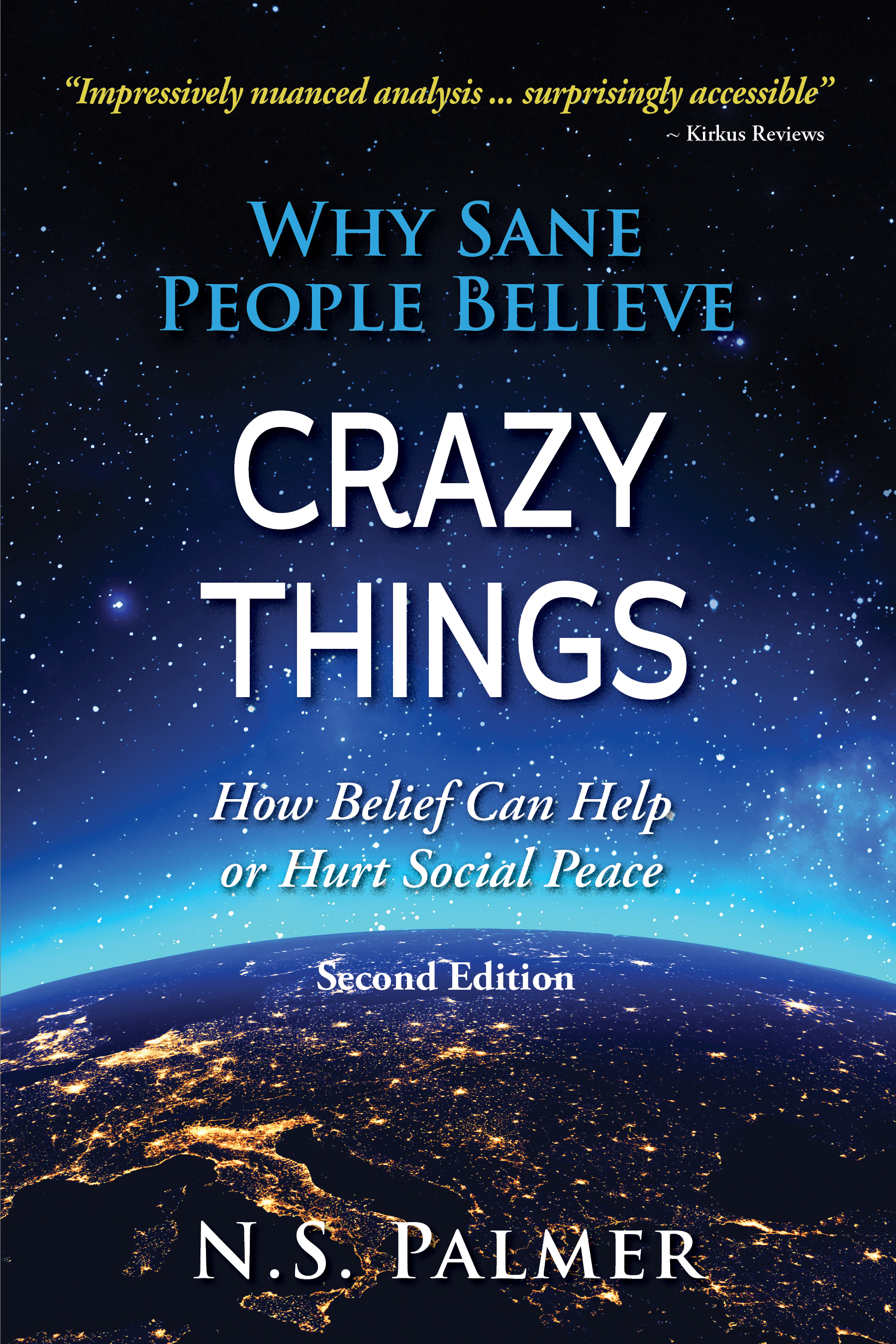I recently participated in an academic discussion about whether or not “racism” is a useful concept.
Amazingly, the discussion was cordial and rational except for the moderator and one participant who was a graduate student in some version of victims’ studies. The moderator occasionally got a little hot under the collar, while the graduate student mostly spouted a lot of jargon and gibberish. She’ll do well in academia.
In any event, I argued that “racism” is not a useful concept because it’s both misleading and emotionally charged. It neither helps us get at the truth nor does it help us remedy any race-related social ills that exist. Here is my contribution to the discussion:
I agree that the term “racism,” as now used in the United States, is unhelpful. It confuses more than it clarifies.
It incites strong emotions because it’s associated with hatred and mistreatment based on race. By itself, such incitement makes the term an obstacle to rational discussion, even if it had a clear definition.
Hatred and mistreatment based on race happened in the past and they continue to happen all over the world. They are pervasive because evolution has programmed in-group / out-group bias into human nature, and racism is just one of its manifestations.
But in 2021 America, almost all whites condemn those things and try to avoid doing them, even if other groups do not. Most Americans abhor anti-black mistreatment in particular, so writers such as Ibram X. Kendi focus instead on what they consider racist policies:
“Racism is a marriage of racist policies and racist ideas that produces and normalizes racial inequities.”
One must also give Mr. Kendi credit for his candor about the nature of affirmative action and “diversity” programs:
“The only remedy to racist discrimination is antiracist discrimination.”
That was the original rationale for affirmative action back in the late 1960s, when it was sold as a temporary measure to help blacks catch up with whites. Five decades later, it’s still with us: as Nobel laureate economist Milton Friedman observed, “Nothing is as permanent as a temporary government program.” High-achieving Asian students who are rejected by Harvard because of their race might take some comfort in the fact.
There are several problems with the current focus on racism:
First, the idea of “racism” as now used is unjustifiably broad. According to Mr. Kendi, it is found in any policy, institution, or custom that “produces or sustains racial inequity between racial groups.” This extends the legal doctrine of disparate impact to every area of life.
However, official science (based on the pioneering work of Dr. Trofim Lysenko) now assures us that race has no biological basis, and that it is merely an arbitrary social construct.
If that is so, then to be antiracist is to oppose anything that leads to inequity between groups, whether or not the groups were previously considered racial. Anything that affects different groups differently, regardless of intent, is prima facie racist.
It implies that every identifiable group should get the same results in every area of life. However, I doubt that Mr. Kendi would endorse such a conclusion. Writers about race get paid a lot more money than clerks at the Department of Motor Vehicles, and yet those two groups — so we are told — are no more arbitrary than arbitrary racial groups, e.g., “people who think they are white,” “people who think they are black” (presumably not including Rachel Dolezal), and “people who think they are Dragonkin.”
Second, the focus on white-black relations assumes that we are still living in the year 1965 when the American population was 88 percent white, 11 percent black, and one percent “other.” At that time, focusing on white-black relations made sense.
But in 2021, the resident population of the United States is about 60 percent white, 20 percent Hispanic, 12 percent black, and eight percent “other.”
With 2017 median income of $81,331, Asians make more money than whites (median income $68,145), whites more than Hispanics (median income $50,486), and Hispanics more than blacks (median income $40,258). In the aggregate, the same order repeats in other areas such as academic achievement and law-abiding behavior: Asians on top, then whites, then Hispanics, then blacks.
To call the system racist (in the old sense) is inaccurate: it rewards some traits and behaviors while ignoring or punishing others. It has nothing to do with race as traditionally conceived. Though they are people of color, Asians (including those whose skin is black) tend to fare better with “white privilege” than whites do.
Racism writers who say that “whiteness” is not about skin color are telling the truth. The Smithsonian Institution’s National Museum of African-American History and Culture described whiteness in terms of traits such as self-reliance, logical thinking, work ethic, and intact families. Notably absent is anything about the traditional idea of “race.”
Instead, the list includes attitudes, institutions, and behaviors without which modern civilization could not exist. People who oppose such things are either not serious or they haven’t thought carefully about the consequences of their beliefs.
Third, preoccupation with racism harms black people by casting them as helpless victims, thereby encouraging them to blame others and discouraging them from taking control of their own lives. When combined with criticism of hard work, logical thinking, and self-reliance as “whiteness,” it both slanders black Americans and makes it more difficult for them to succeed.
Focus on racism is therefore both misleading and extremely harmful to everyone concerned.








“Racism” has been a very flexible thing. It meant one thing in 1921, another in 1971 and yet another today. Thank you for raising a sorely neglected point: what is “race” anyway? I have understood it to come from early in the “scientific” era when it was used as a classification tool thought at the time to have meaning in measuring human potential. I knew lots of people born around 1900 who believed there were substantial, inborn differences between races. I know virtually nobody who believes that today.
I believe that when people use “race” today they really mean “culture”. All cultures value some things above others. Society at large rewards those who master certain characteristics and habits and penalizes those who lack them. The problems happen when society, by experience, comes to expect that a given person is a member of a given culture, and that he possesses attributes that are common to that culture.
LikeLike
The validity of any concept is determined mainly by its usefulness. But usefulness always implicitly refers to some purpose: in other words, “useful for what?”
For some purposes, race is a useful concept; for others, it isn’t. Because of geography, for example, East Asians evolved different dietary needs, moral attitudes, and culture than Europeans. If you’re cooking for them or negotiating treaties with them, it’s useful to know such things. Similarly, Africans are more prone to some illnesses than Europeans and they react differently to some drugs. It’s useful for medical professionals to know such things.
So I wouldn’t go as far as to say the idea of race has no value. Sometimes it’s useful and sometimes it’s not.
LikeLiked by 1 person